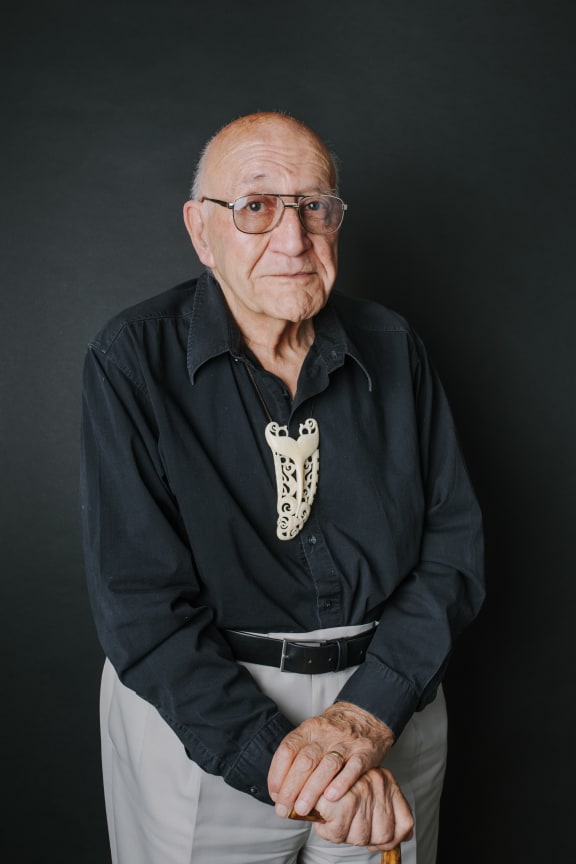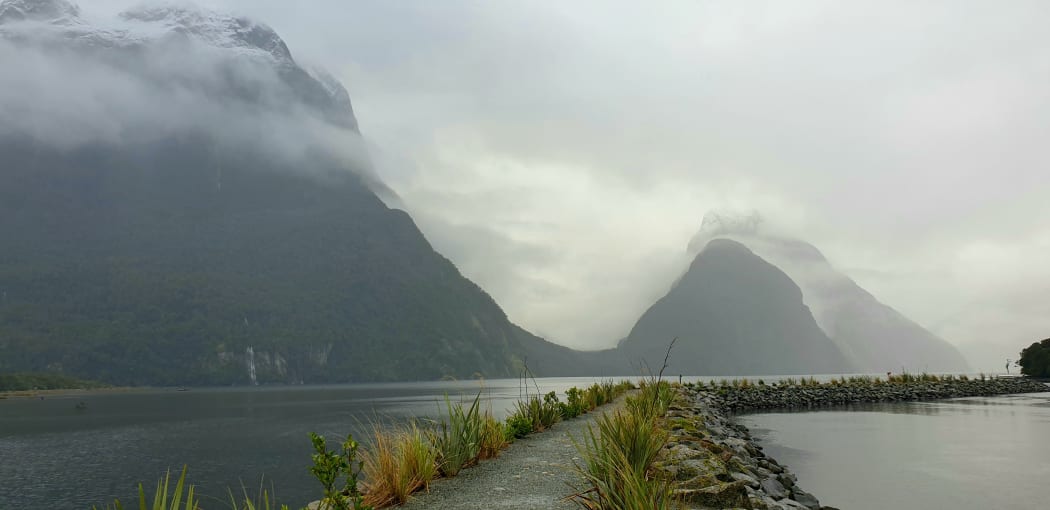
Tā Tipene O'Regan Photo: Supplied
Renowned Māori leader Tā Tipene O'Regan (Ngāi Tahu) was named 2022 Kiwibank New Zealander of the Year at a digital ceremony this week.
This year marks the 25th anniversary since Tā Tipene successfully led the negotiation of one of Aotearoa's first major iwi settlements, Te Kerēme - the Ngāi Tahu Claim. The moment was a long time in the making, almost 150 years after the first formal statement of grievance was made against the Crown.
Tā Tipene was once described by The Press as being a frighteningly intelligent boardroom brawler who was "totally committed to securing the return of some of his people's land".
Now in his 80s, Tā Tipene is one of the country's most respected and admired kaumātua, who has dedicated his life to building a bicultural nation. Among his other work, he has recently devoted time and energy to helping establish the Ngāi Tahu archive.
Tā Tipene said the award came during a week where it was like a scythe had swept through te ao Māori, with the deaths of prominent leaders Sir Wira Gardiner, Dame June Jackson, and Moana Jackson.
"All very different, and incredible contributors in different way, and I've known them in various guises over a long time. Not always comfortably, but always on courteous and respectful terms," he said.
In 2014, Tā Tipene said: "I'm concerned that in this great intersection of law and history, to which the Treaty and its outcomes have condemned us, we might begin to so devalue our past that our history and tradition become mere opinion, blown by political winds and fanned by incessant gusts of media opportunism. The only protection is a rigourous and culturally inclusive scholarship, and our ultimate duty is to protect it."
Eight years after writing that, is he confident scholarship is becoming more sufficient and rigourous?
"Well, it's a bit like ... none the wiser, but better informed. ...I think we are much better informed, I think we still have rather loopy thinking going on in the outside.
"We've had a bit of a tussle recently between those who without any real historical analysis or content have managed to give new birth to the idea that Māori discovered Antarctica and went there and landed there, all on the basis of some interpretations of Rarotongan traditions..."
He said it was frustrating that funding grants had been given out to study these claims, while other more worthy studies were not funded.
"We've still got plenty of people out there dwelling in the lands of fantasy."
Does he feel it's a positive step that schools are to begin teaching Aotearoa New Zealand's histories and Te Takanga o Te Wā, in schools from next year?
"Not necessarily. We've spent a long time since the curriculum was ethnically cleansed by political endeavour and the popular movements of a past time in the late 1960s.
"We've had no real requirements on the teaching of civics, our constitutional arrangements, and Māori studies, race relations - they've come back in steadily, in bits and pieces, but with no systematic curriculum, and we're now starting to give some new form to that.
"[Back then] there was a deliberate ... the PPTA was regarded by the politicians - a large number of them, as a sort of left wing cell that had to be countered, and the curriculum was basically cleansed of a whole heap of our history, and it was not well done.
"But we've come through that phase and we're now recreating the past again, and I'm anxious that we make too simplistic a model of that. That we just replace one unsatisfactory narrative with another unsatisfactory narrative, and we forget the fact that our history as a nation - both Māori and Pākehā - is much more nuanced."
The wider changes in knowledge and awareness that can result from changes to curriculum take time to work through and take hold, as teachers themselves upskill their knowledge and familiarity of the new material, he said.

The Milford Sound. Photo: RNZ / Tess Brunton
Tā Tipene has previously expressed backing for a proposal to tunnel from the Dart Valley to Milford Sound, a tunnel built to carry only buses.
"The tunnel was going underneath Ngāi Tahu land - the only point at which it intersected improperly with the national park was a few metres where it came out and connected with the Hollyford Forks highway.
"I was in favour because it was going to put people at high speed, and seriously reduce the amount of time, carbon, all the rest of it, that was going to be generated and will be generated again by the buses...
"That whole exercise was I thought in many ways a very good way to take the pressure off Milford, because, as the original Director General of Conservation Kenneth Piddington used to complain - Milford or piopiotahi was going to be loved to death by crowds, because they all come in the middle of the day, bang, with a huge impact... the ability to spread them over the day with much less intensity seemed to me a very useful notion."
Does he think it'll get built?
No, New Zealand is always very ready to miss any big opportunity, he said.

